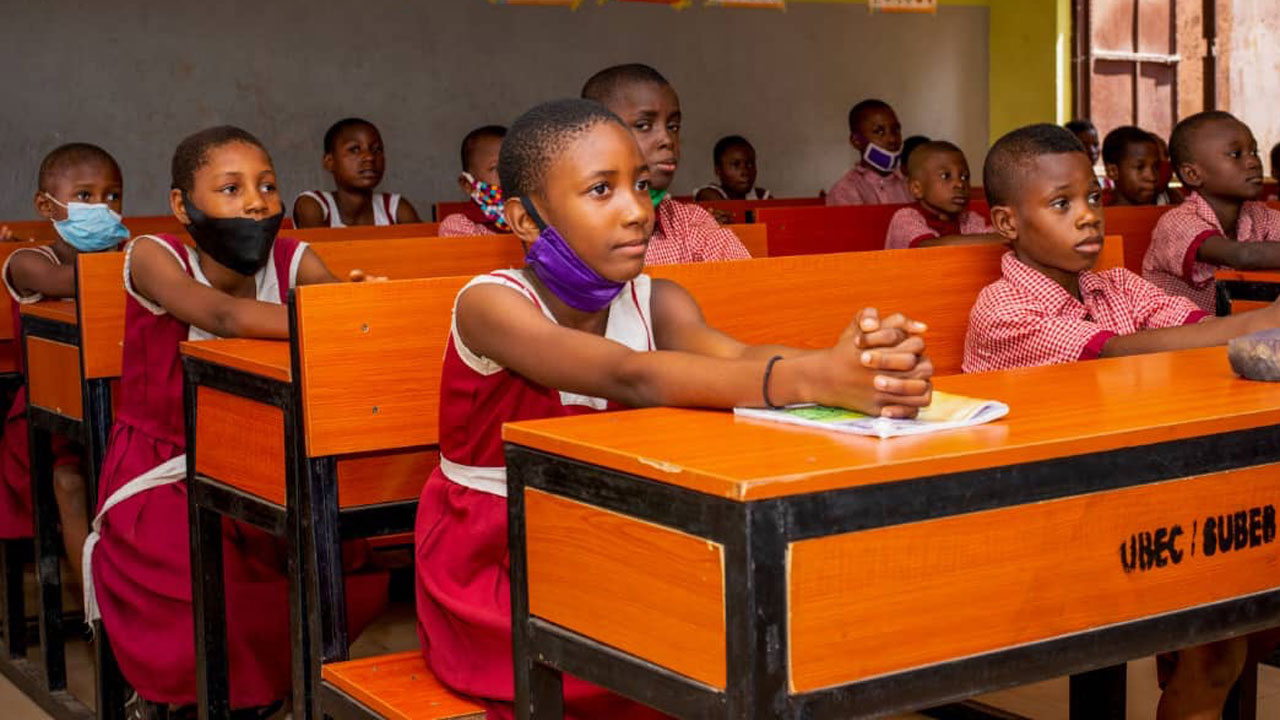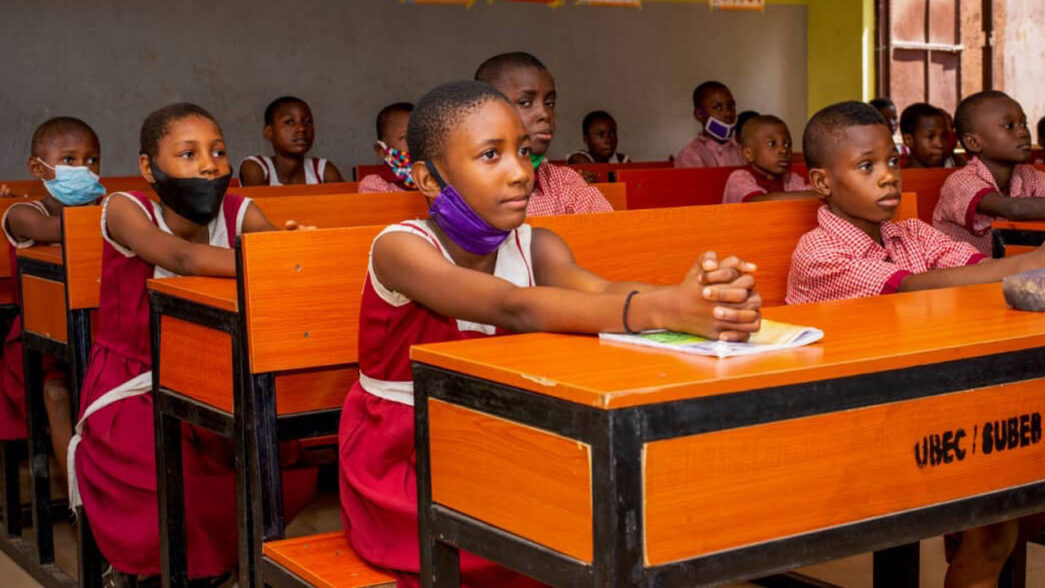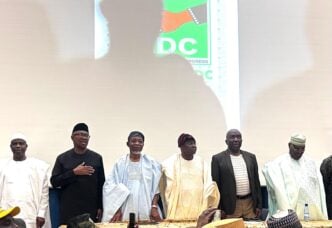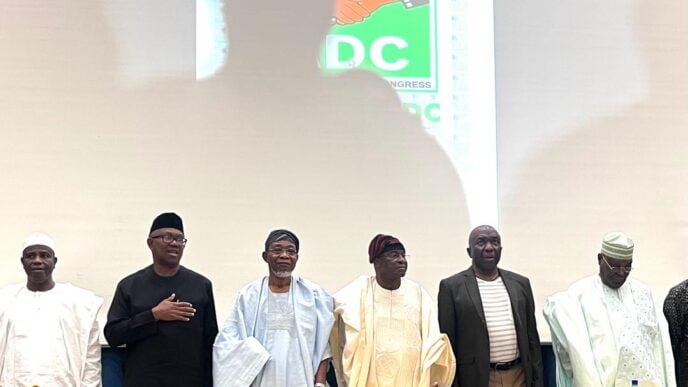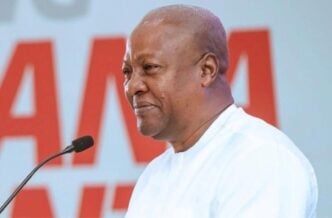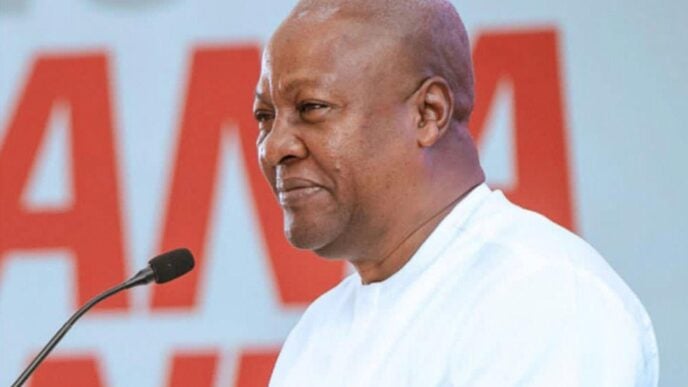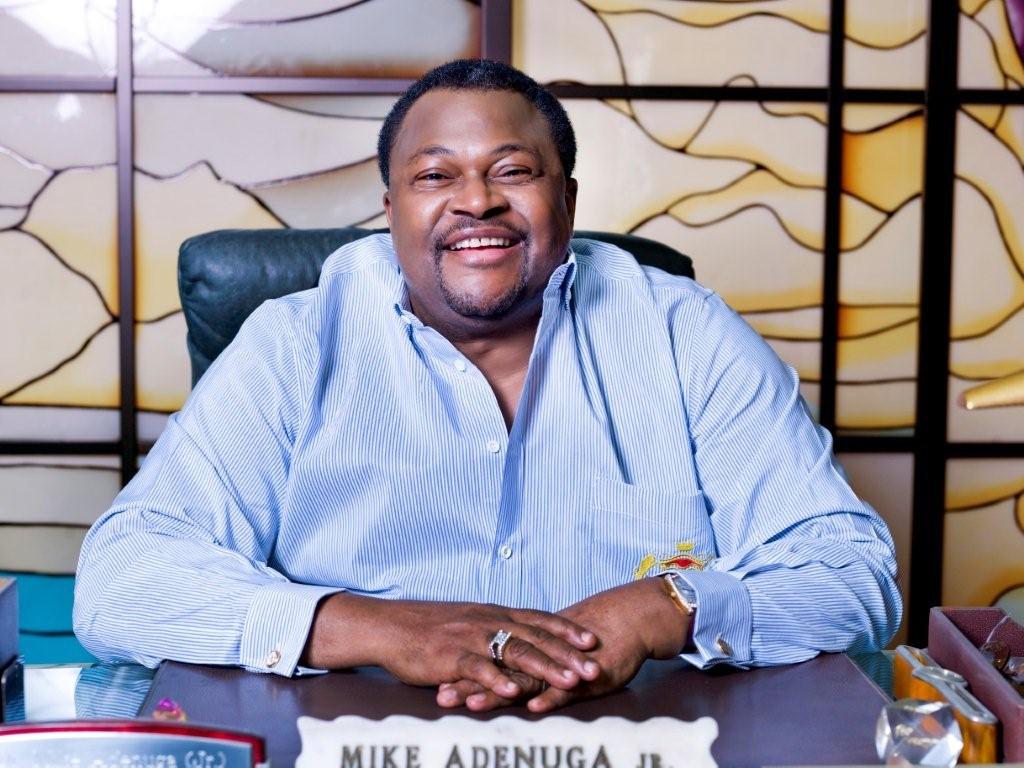File photo of children in school
BY OSENI OLUWATOBI
The Federal Government of Nigeria has introduced a revised curriculum for primary, secondary, and technical schools, marking a long-overdue reform. This new framework takes into account current national realities and global developments, and has been widely commended as a critical step toward aligning the country’s education system with contemporary needs. Yet, what unsettled me most was watching the backlash against Bosun Tijani, the minister of communications, innovation, and digital economy, on Twitter a few weeks ago. Many Nigerians mocked him for “doing too much on AI” and argued that the country has more immediate problems to solve.
While their frustrations are valid in a nation burdened by unemployment, poor infrastructure, and insecurity, the criticism misses a larger truth: we cannot afford to keep playing catch-up with the rest of the world. The Fourth Industrial Revolution is here, and waiting until our “basic problems” are solved before engaging with artificial intelligence, robotics, and emerging technology will only widen the gap. That is why I was particularly pleased to see the Hon. Minister recognised in TIME 100’s list of global AI leaders. It was a reminder that while the domestic scepticism may be loud, the international community sees the importance of his efforts, and so should we.
On paper, the new curriculum is the long-awaited breakthrough. Junior secondary students will study basic maths, introductory computer programming, and reproductive health, while their senior counterparts advance into calculus, AI, financial mathematics, and digital entrepreneurship. For the first time, Nigerian students are expected to graduate with skills that align with global trends, rather than lagging decades behind. English and communication studies have been retooled to focus on media literacy, critical reading, and public speaking in recognition of the dangers of misinformation and the demand for articulate global citizens.
Advertisement
The social sciences encompass governance, law, globalisation, and ethics. Creative industries such as Nollywood and Afrobeats are finally acknowledged through music and film production tracks. Physical education addresses mental health and leadership, while research projects in the final year are designed to instill inquiry and innovation.
Yet, this paper revolution highlights a perennial Nigerian issue, as with most policies: brilliant policy frameworks that fail in implementation. Without reliable internet, teacher retraining, funding for labs, or a culture of accountability, these curriculum pages risk gathering dust like their predecessors. The question is not whether the curriculum is visionary; it is whether Nigeria can execute it in real classrooms where chalkboards, overcrowding, and underpaid teachers are still the reality.
The fourth industrial revolution is rewriting global economies at breakneck speed. Nations that master it are already reaping dividends: India has built a $200 billion IT outsourcing industry; Rwanda has embedded drone technology into public health; South Korea turned its post-war poverty into a tech powerhouse through aggressive education reforms. Nigeria, in contrast, continues to play catch-up. Our digital economy strategy is always framed as a reaction to what others have done, not a proactive leap.
Advertisement
The painful truth is that the global economy is not waiting for us. Catch-up is a losing strategy in 4IR, where the gap widens exponentially. Unless Nigeria decides to lead in some niches, say, AI for African languages, fintech infrastructure, or sustainable energy tech, we will remain spectators. A curriculum that teaches AI in classrooms is a start, but without systemic readiness, it is like teaching swimming in a desert.
In 1960, around the same time Nigeria gained independence, Nobel laureate Theodore Shultz presented his Human Capital Theory, arguing that economic growth depends on three elements: first, countries with little human capital cannot manage physical capital effectively; second, growth can only occur if physical and human capital rise together; and third, human capital is the most important factor of production.
Gary Becker later expanded this thesis, showing that education, training, and skills development are investments as critical as roads and factories. This theory could have been written with Nigeria in mind. Our leaders often obsess over physical capital building data centres, importing hardware, installing ICT hubs, while neglecting the human beings who must operate, maintain, and innovate around those assets.
The new curriculum is ambitious, but who will guide students through Python and JavaScript when many teachers themselves cannot navigate PowerPoint? The gap between infrastructure and instruction is not merely a technical oversight; it is a structural contradiction. Without matching the investment in buildings and devices with an even greater investment in teachers, Nigeria risks turning the new curriculum into a hollow gesture, a declaration of intent without the human muscle to make it real.
Advertisement
Teachers are the most critical but most neglected piece of the education puzzle. They are overworked, underpaid, and often recruited through broken systems that prioritise political patronage over competence. A curriculum filled with AI, robotics, and biotech cannot succeed if delivered by teachers whose last training workshop was 15 years ago. We need aggressive human capital development of teachers, not just ad-hoc seminars, but continuous retraining and digital upskilling.
Exchange programs are essential. Imagine Nigerian teachers spending a semester in South Korea, India, or Estonia, learning how these countries integrate technology into classrooms. Imagine reciprocal programs where foreign teachers bring fresh methods into Nigerian schools. Beyond skill, teachers need to be rebranded as prestigious professionals, not last-resort employees. Noticed how I said teachers, not ministry of education staff? Nigeria needs to move beyond allowing nepotism to affect value delivery.
Another weakness in Nigeria’s education culture is opacity. Student and teacher performance data are locked away, poorly tracked, or manipulated. Without transparency, reform is blind. If Nigeria wants to compete in 4IR, performance must be openly tracked and benchmarked against global standards. Literacy, numeracy, coding proficiency, problem-solving, and research output should be measured not only at the school level but also aggregated into national dashboards. Parents, communities, and policymakers must see real-time progress.
For teachers, performance-based incentives tied to student outcomes should replace the old seniority-based promotions. For students, learning should be judged not just by WAEC grades but by readiness to engage emerging technologies.
Advertisement
One radical idea the curriculum opens is to measure overall student performance against emerging technology standards. Instead of ranking schools only by exam scores, we should ask: how many students can build a functioning mobile app? How many can design a basic robot or analyse climate data? How many can pitch a startup idea and defend it with numbers? These are not “extra-curricular” activities; they are the future of employability.
Linking student achievement to tech-readiness would also make Nigerian graduates competitive globally. Tech firms in Lagos, Nairobi, or Bangalore could recruit straight from secondary schools if students already demonstrate these capabilities. This requires investment in labs, competitions, and hackathons, but it would redefine education from rote memorisation to problem-solving. It would also reveal disparities; urban schools may sprint ahead while rural ones lag. But even that visibility is better than ignorance, because it allows targeted support. In the 4IR, you don’t prepare students for “jobs of the future” by giving them dusty theory; you prepare them by letting them build, fail, and innovate in the present.
Advertisement
The brain drain is real. Our brightest teachers, researchers, and innovators are leaving for Canada, the UK, and the US. Attracting talent back, or retaining it at home, requires more than patriotic appeals. It demands structured incentives. Nigeria could design talent attraction schemes where top graduates are offered generous packages to teach for five years before moving into industry. We could build partnerships with private tech companies that co-sponsor teachers in return for a pipeline of skilled graduates.
Exchange programs with global universities could bring Nigerian PhDs back home temporarily, enriching local classrooms. The prestige of teaching must be rebuilt not only with salaries but with recognition, housing, health care, and research grants. If footballers and musicians can be elevated as national heroes, why not teachers who shape the very future? Without talent, the curriculum is ink on paper. With talent, it could transform Nigeria’s human capital into an engine of growth.
Advertisement
Reforming teacher education itself is the final frontier. Nigeria’s Colleges of Education are outdated, underfunded, and disconnected from the realities of modern classrooms. If they continue producing graduates who cannot use digital tools, the curriculum will collapse under its own ambition. The government should establish Tech-Pedagogy Institutes that combine subject expertise with digital teaching methods. Partnerships with institutions like MIT, Cambridge, and Ashesi University could embed global standards into local training.
Teacher training must also move online, allowing continuous modules that adapt as technology evolves. No teacher should ever be more than six months away from their last training update. This shift will require investment but also a cultural reset: teacher education is not a one-time degree but a lifelong process. By reforming how we train teachers, we reform everything else.
Advertisement
The new education curriculum is a bold step. It signals that Nigeria wants to participate in the Fourth Industrial Revolution, not as a consumer but as a creator. Yet vision without execution is hallucination. The lessons from Schultz and Becker are clear: human capital is the engine of growth. Without teachers who can deliver, track, and inspire, even the most modern curriculum is dead on arrival. Bosun’s international recognition as a Times 100 AI leader is proof that Nigerians can think at the highest global level.
But citizens’ frustration on Twitter is also valid: until those ideas translate into classrooms with light, internet, trained teachers, and measurable outcomes, celebration abroad will mean little at home. What’s next is not another announcement. What’s next is courage—courage to invest in people, to be transparent about performance, to attract and retain talent, and to make teachers the most respected professionals in the land. Nigeria has drawn a map; now it must walk the road.
Oseni Oluwatobi can be contacted via [email protected]
Views expressed by contributors are strictly personal and not of TheCable.
